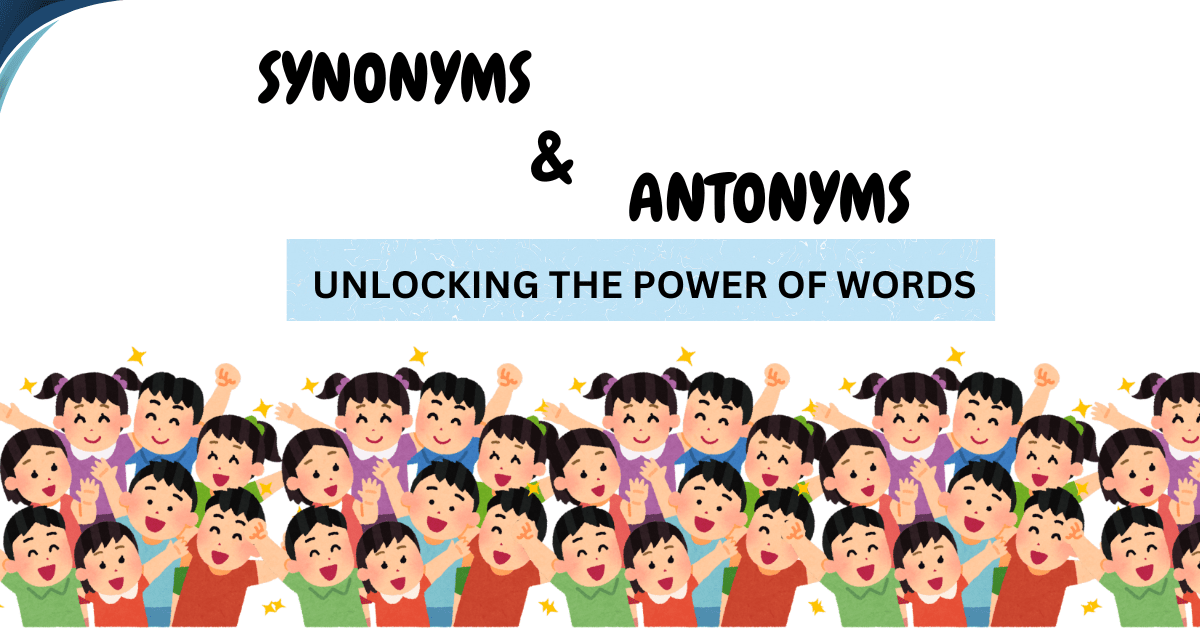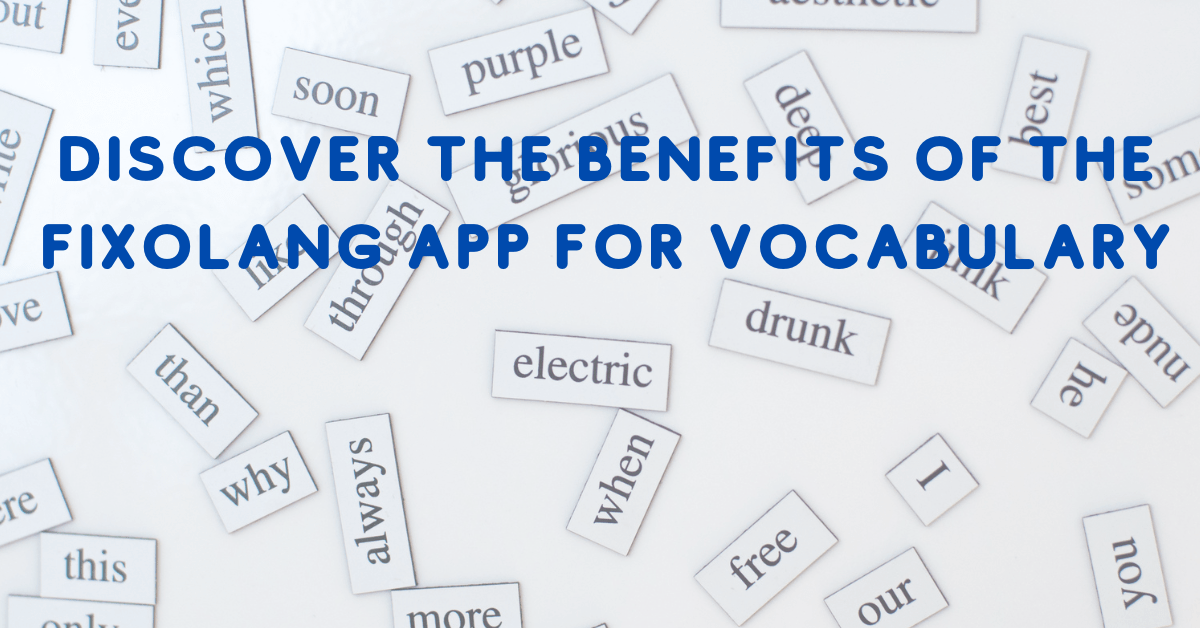Have you ever felt stuck using the same words repeatedly? Do you often find yourself saying happy when you could say joyful or elated? Or perhaps you’ve written big so many times that it no longer has any impact?
If this sounds familiar, you’re not alone! The English language is vast, with thousands of words that can help you express yourself in a richer and more precise way. Learning synonyms and antonyms is one of the easiest ways to expand your vocabulary, improve your writing, and make your speech sound more polished and engaging.
In this blog, we’ll explore what synonyms and antonyms are, why they are important, and how apps like EngVarta and Fixolang can help you master them.
What Are Synonyms?
Synonyms are words that have the same or nearly the same meaning as another word. They allow us to express similar ideas in different ways, making our language more varied and interesting.
For example, instead of repeatedly using beautiful, you could say gorgeous, stunning, elegant, or charming, depending on the context.
Why Should You Use Synonyms?
Using synonyms helps you:
✅ Avoid repetition – Instead of sounding monotonous, your speech and writing will feel more dynamic.
✅ Express yourself better – Sometimes, a synonym can capture your exact emotion or idea more effectively.
✅ Improve your fluency – Knowing different words for the same meaning makes you sound more confident and natural.
Examples of Synonyms
Here are ten common words and their synonyms:
- Happy – Joyful, Cheerful, Elated, Content
- Big – Huge, Enormous, Gigantic, Massive
- Fast – Quick, Swift, Speedy, Rapid
- Smart – Intelligent, Clever, Sharp, Bright
- Beautiful – Gorgeous, Stunning, Attractive, Elegant
- Cold – Chilly, Freezing, Icy, Frosty
- Tired – Exhausted, Weary, Fatigued, Drained
- Easy – Simple, Effortless, Straightforward, Basic
- Angry – Furious, Mad, Irritated, Annoyed
- Funny – Hilarious, Amusing, Entertaining, Witty
What Are Antonyms?
Antonyms are words that have opposite meanings. They are useful when you want to describe contrasts, emphasize differences, or express opposing ideas.
For example, the opposite of hot is cold, and the opposite of fast is slow.
Why Should You Use Antonyms?
✅ Enhance your descriptions – Using antonyms can create contrast and make your writing more engaging.
✅ Improve your critical thinking – When you know opposites, you understand the nuances of words better.
✅ Score higher in exams – Tests like IELTS, TOEFL, and SAT often assess vocabulary depth, including antonyms.
Examples of Antonyms
Here are ten words along with their antonyms:
- Happy – Sad, Unhappy, Miserable, Gloomy
- Big – Small, Tiny, Little, Miniature
- Fast – Slow, Sluggish, Lazy, Unhurried
- Smart – Dumb, Unintelligent, Foolish, Clueless
- Beautiful – Ugly, Unattractive, Plain, Dull
- Cold – Hot, Warm, Toasty, Heated
- Tired – Energetic, Lively, Fresh, Alert
- Easy – Difficult, Hard, Challenging, Complicated
- Angry – Calm, Peaceful, Gentle, Composed
- Funny – Serious, Boring, Dull, Unamusing
How to Learn and Use Synonyms & Antonyms Effectively?
Now that you understand synonyms and antonyms, let’s explore how to master them effectively.
1. Read More
Books, newspapers, and online articles introduce you to new words naturally. Notice how authors use varied vocabulary instead of repeating the same words.
2. Use a Thesaurus
Websites like Thesaurus.com can help you discover synonyms and antonyms for any word. But remember, not all synonyms are interchangeable! Always check their meaning and usage before using them.
3. Practice Writing
Try writing a paragraph and then replace some common words with synonyms. For example:
Before: She was very happy to receive the big prize.
After: She was absolutely elated to receive the enormous prize.
4. Play Word Games
Games like Scrabble, Word Association, and Crossword Puzzles can make learning fun. You’ll pick up new words without even realizing it!
5. Speak and Get Feedback
Using new words in conversations is the best way to remember them. But what if you don’t have anyone to practice with? This is where EngVarta and Fixolang can help.
How EngVarta & Fixolang Help You Master Vocabulary
Expanding your vocabulary isn’t just about memorizing words—it’s about using them confidently. This is where EngVarta and Fixolang can make a huge difference.
📌 EngVarta: Learn by Speaking with Experts
EngVarta is a live English practice app where you can talk to real experts and use new words naturally in conversation.
✅ Expand your vocabulary – Experts help you replace basic words with more advanced synonyms.
✅ Get real-time feedback – If you use a word incorrectly, experts guide you with better alternatives.
✅ Improve fluency – The more you practice, the more comfortable you become using synonyms and antonyms.
💡 Example: If you always say “I am very tired”, an expert may suggest saying “I am exhausted” instead.
📌 Fixolang: AI-Powered IELTS Speaking Practice
Fixolang is an AI-based IELTS practice app that helps you improve your vocabulary and pronunciation through instant feedback and scoring.
✅ AI corrections on word choices – Helps you use precise synonyms and avoid repetitive words.
✅ IELTS-style speaking practice – Expands your vocabulary for formal conversations.
✅ Advanced vocabulary exercises – Encourages you to use a variety of words in responses.
💡 Example: If you say “The building is big” in your IELTS speaking test, Fixolang might suggest using “The building is enormous” to boost your score.
Final Thoughts
Learning synonyms and antonyms is one of the fastest ways to improve your English. It helps you:
✔ Speak and write more fluently
✔ Avoid repetitive words
✔ Score better in exams like IELTS
✔ Express yourself with clarity and confidence
But learning new words isn’t enough—you need to use them in real conversations. That’s why apps like EngVarta (for real conversations with experts) and Fixolang (for AI-powered feedback) are great tools to help you practice effectively.
🚀 Challenge for You! Pick one word you use frequently and replace it with a synonym in your next conversation or writing. Drop your example in the comments! 😊
Would you like more vocabulary-building tips? Let me know!



